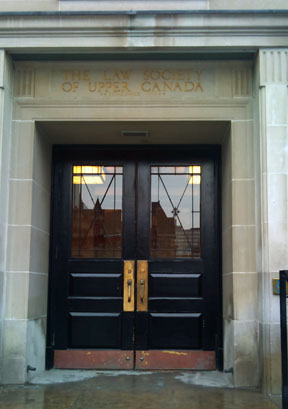The last line in any Law Society of Upper Canada discipline decision is one of the most interesting to me: the cost awards and restitution orders against the lawyer.

I wonder what are the chances of the law society collecting on these orders, especially when so many licensees refuse to co-operate, claim they’re broke, or in some cases, appear to have skipped the country with their ill-gotten gains. Even when they do co-operate, the panel’s decision often has a big impact on their ability to make any money in the future.
And it seems a number of LSUC benchers wonder the same thing, because the law society’s audit committee has broken it down for us in a report to this month’s Convocation.
According to the figures, which come from cost awards, fines, restitution orders and Compensation Fund repayment demands made against 211 lawyers, ex-lawyers and paralegals in 2010, the LSUC expects to collect about 10 per cent of the money it’s owed.
“In many cases, where people have lost their licences,” the award is considered a bad debt, explained Chris Bredt, chairman of the finance committee. “But reasonable effort are taken to collect those that are seen to be collectable.”
On Oct. 31, 2010, the discipline order receivable account stood at just over $5 million. But each individual account has a provision set up against it where the chances of collecting are low, reducing the amount due to a more realistic target (often zero). The total provision for “doubtful” accounts is $4.5 million, leaving a net receivable balance of $500,000.
“These amounts provided for as bad debts are not written off, but continue to be monitored until collected or confirmed as uncollectible,” says a brief
report on the issue to Convocation.
Then there is the problem of getting even that money. By the end of October, the law society had only brought $314,000 in payments

